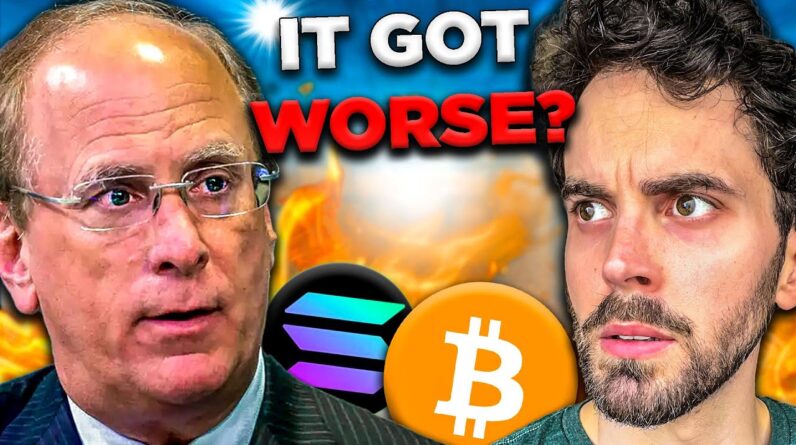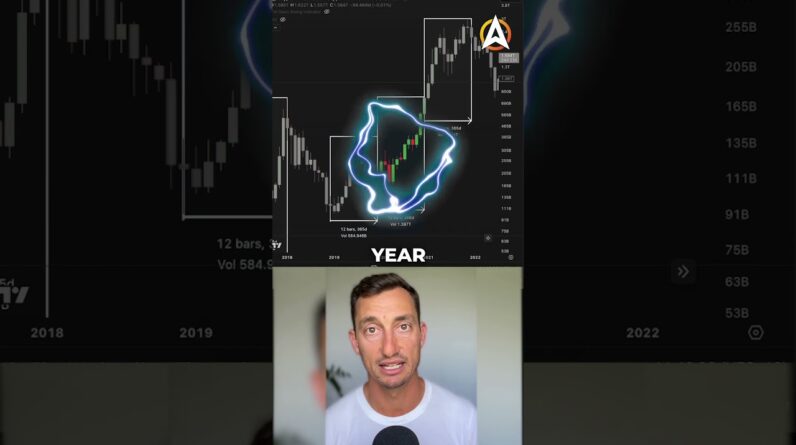
Our heart sank as we received the latest news about the BlackRock Bitcoin ETF. It seems that the situation has taken a turn for the worse. The once-promising investment opportunity now hangs in the balance, leaving many investors anxious and uncertain. In this blog post, we will delve into the recent developments surrounding the BlackRock Bitcoin ETF and explore the possible implications for the cryptocurrency market. Join us as we dissect this latest setback and attempt to make sense of what lies ahead.
Heading 1: Introduction
In today’s rapidly evolving cryptocurrency landscape, the news surrounding BlackRock’s Bitcoin ETF is causing quite a stir in the industry. Market participants have been closely following the developments as the Securities and Exchange Commission (SEC) engages in closed-door meetings with Bitcoin ETF applicants. One particular aspect of these meetings that has raised eyebrows is the discussion around cash creation and in-kind redemptions. BlackRock, Bitwise, Arvest, and Galaxy Digital have all made the switch to cash creation for their ETFs, and this decision has triggered a wave of speculation and concern. In this article, we will delve into the details of this development and discuss its potential repercussions for the cryptocurrency market.
Heading 2: Cash Creation in Bitcoin ETFs – A Game Changer?
Cash creation, as being discussed in the closed-door meetings, entails converting Bitcoin into cash before trading shares of the ETF. This departure from the traditional in-kind redemption process has raised several questions and uncertainties within the investment community. The decision to implement cash creation may introduce a new level of complexity and risks for the ETF issuers. As we explore this topic further, let’s take a closer look at cash creation and its potential impact.
Subheading 2.1: Understanding Cash Creation
Cash creation, in the context of Bitcoin ETFs, involves converting Bitcoin into cash as a prerequisite for the trading of ETF shares. This means that the authorized participants of the ETF must convert their Bitcoin holdings into cash before engaging in share transactions. By doing so, the ETF aims to ensure liquidity and streamline the trading process. However, this shift towards cash creation has led to concerns about how it may impact the overall structure and performance of the ETF.
Subheading 2.2: Cash Creation vs. In-Kind Redemptions
In-kind redemptions have long been the preferred method for ETFs, as it allows for the direct transfer of assets, in this case, Bitcoin, between authorized participants and the ETF. In contrast, cash creation introduces an additional step that may complicate the process. By requiring conversion into cash, the ETF issuers are essentially creating an additional layer of complexity and potential trading limitations.
Subheading 2.3: BlackRock’s Approval Ratings and the Implications
BlackRock, a prominent player in the investment management industry, has a track record of high approval ratings for its ETF applications. However, the decision to switch to cash creation for their Bitcoin ETF has left many questioning the motivations behind this change. It remains to be seen how this decision will affect BlackRock’s standing within the cryptocurrency community and its chances of gaining SEC approval.
Heading 3: The Relationship Between Cash Creation and Bitcoin Holdings
Contrary to popular misconception, the adoption of cash creation does not imply that the ETFs will no longer hold spot Bitcoin. It simply means that Bitcoin must be converted to cash before trading shares of the ETF can occur. This ensures that there is sufficient liquidity in the market and reduces potential operational risks. By holding both cash and Bitcoin, the ETFs can benefit from potential price appreciation of the cryptocurrency while also maintaining the necessary liquidity for efficient trading.
Heading 4: Blast – An Ethereum L2 Protocol Surges Ahead
In other news, Blast, an Ethereum Layer 2 (L2) protocol, has recently reached a total value locked (TVL) record above $900 million. Blast has gained recognition for its native yield feature, attracting attention from investors and participants in the decentralized finance (DeFi) ecosystem. Boasting a team with expertise in L2 solutions and having some members involved in the development of the highly successful Blur protocol, Blast has sparked excitement and speculation in the market.
Subheading 4.1: Questions Surrounding Blast’s Legitimacy
Despite Blast’s impressive TVL record and its strong team, doubts have arisen regarding its legitimacy. Some skeptical market participants have raised concerns about the protocol being a potential Ponzi scheme. These allegations emphasize the need for careful due diligence and thorough research before diving into any investment opportunity, including those within the crypto market.
Heading 5: The Rise of L2 Protocols
L2 protocols have emerged as a significant trend in the cryptocurrency market. These layer 2 solutions aim to address the scalability issues faced by blockchain networks, such as Ethereum, by enabling faster and cheaper transactions. With Blast’s recent success and the overall surge in L2 protocol adoption, it is evident that these solutions hold great potential for the future of decentralized finance.
Heading 6: Altcoin Daily – A Reliable Source for Cryptocurrency News
For individuals seeking timely updates on various cryptocurrency news and market trends, Altcoin Daily has established itself as a trusted source. With a focus on delivering informative and engaging content, Altcoin Daily offers valuable insights to help navigate the ever-changing world of cryptocurrencies. Stay informed and stay ahead with Altcoin Daily.
Conclusion
The recent developments surrounding BlackRock’s Bitcoin ETF and the adoption of cash creation have injected a new level of uncertainty into the cryptocurrency market. As the SEC holds closed-door meetings and major players switch to this new method, the implications for the industry remain uncertain. Additionally, the ascent of Blast, the Ethereum L2 protocol, and the questions concerning its legitimacy serve as a reminder that thorough research and caution are essential when navigating the crypto landscape. It is crucial for investors and enthusiasts to stay informed and vigilant as the market continues to evolve.
FAQs
- Does cash creation mean that Bitcoin ETFs will no longer hold spot Bitcoin?
No, cash creation simply requires the conversion of Bitcoin into cash before trading shares, but ETFs can still hold spot Bitcoin. - What is BlackRock’s track record with ETF applications?
BlackRock has a history of high approval ratings for its ETF applications, but the recent switch to cash creation has raised questions. - What is Blast, and why is it gaining attention?
Blast is an Ethereum L2 protocol that has recently surpassed $900 million in total value locked (TVL) and offers a native yield feature. Its team’s expertise and connection to Blur have sparked interest. - Is Blast considered a Ponzi scheme?
Some market participants have raised concerns about Blast’s legitimacy, suggesting the possibility of it being a Ponzi scheme. - Why are L2 protocols gaining popularity?
L2 protocols provide solutions to scalability issues faced by blockchain networks like Ethereum, offering faster and cheaper transactions. Their adoption is fueling optimism in the crypto market.






